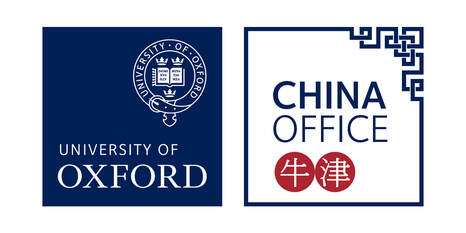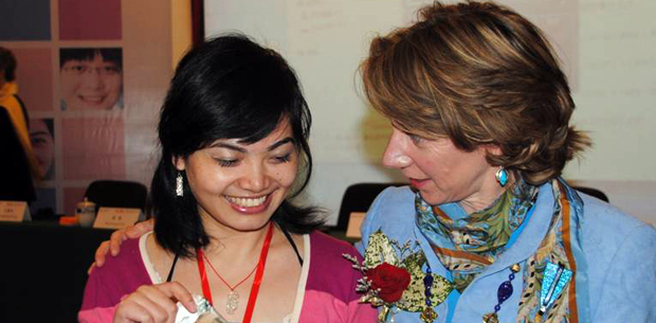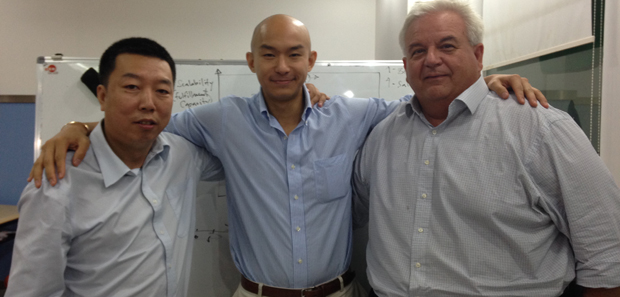Spotlight on Oxford
Oxford In China > Spotlight > 10,000 Women Project in China
SPOTLIGHT
OXFORD AND THE 10,000 WOMEN PROJECT IN CHINA: A FIVE-YEAR JOURNEY
Sabina Liu (MBA 2008) looks back at the five years of the Goldman Sachs 10,000 Women Initiative run by Oxford in China.
OXFORD AND THE 10,000 WOMEN PROJECT IN CHINA: A FIVE-YEAR JOURNEY
Sabina Liu (MBA 2008) looks back at the five years of the Goldman Sachs 10,000 Women Initiative run by Oxford in China.
For me, nowhere can
Oxford’s impact on China be seen more clearly than in the 800 Chinese women
entrepreneurs who have successfully completed the two Goldman Sachs 10,000 women programmes, which the Saïd Business School helped to run
in the past five years. I, together with Oxford alumni Cecilia
Jiang (MBA 2006), Julia Charlton (Diploma in Organisational Leadership 2008), Arthur
Bi (MBA 2005), Ashton Lee (MBA 2007), Andrew Lo (MSc in Management
Research 2002) and Steven Luk (MBA 2012) have mentored
and grown with the Chinese women entrepreneurs in the programmes during this
five-year journey.
10,000 Women is a five-year, $100 million global initiative to help grow local economies and bring about greater shared prosperity by providing 10,000 underserved women entrepreneurs with a business and management education, access to mentors and networks and links to capital. The initiative operates through a network of more than 90 academic and nonprofit institutions. These partnerships help develop locally relevant coursework and improve the quality and capacity of business education worldwide.
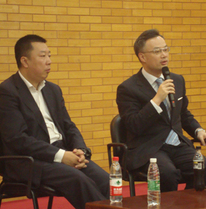 Arthur Bi and Andrew Lo
Arthur Bi and Andrew Lo
As part of the initiative, the Saïd Business School collaborated with the Global Entrepreneurship Research Centre (GERC) of Zhejiang University in Hangzhou, East China from 2008, and the School of Business Administration of Southwestern University of Finance and Economics (SWUFE) in Chengdu, West China from 2010. Oxford lecturers were actively involved in curriculum design, scholars’ case study writing and teaching. "This programme has attracted female entrepreneurs of a high caliber," said Elizabeth Paris, Programme Director at Saïd Business School. "Their energy, attitude and progress have made a positive impact on local industries. They have taken advantage of this opportunity provided by Goldman Sachs to enhance their careers and bring change to their families and the community.”
As part of the initiative, the Saïd Business School collaborated with the Global Entrepreneurship Research Centre (GERC) of Zhejiang University in Hangzhou, East China from 2008, and the School of Business Administration of Southwestern University of Finance and Economics (SWUFE) in Chengdu, West China from 2010. Oxford lecturers were actively involved in curriculum design, scholars’ case study writing and teaching. "This programme has attracted female entrepreneurs of a high caliber," said Elizabeth Paris, Programme Director at Saïd Business School. "Their energy, attitude and progress have made a positive impact on local industries. They have taken advantage of this opportunity provided by Goldman Sachs to enhance their careers and bring change to their families and the community.”
According to Goldman Sachs, 30 months after graduation of surveyed women who were enrolled in the programmes globally, 83% have grown their businesses, 77% have added jobs, and 9 out of 10 mentor another woman.
Each year, Oxford alumni travelled to Hangzhou and Chengdu to share their experience, advise on the scholars’ business plans and build personal connections with them.
According to Goldman Sachs, 30 months after graduation of surveyed women who were enrolled in the programmes globally, 83% have grown their businesses, 77% have added jobs, and 9 out of 10 mentor another woman.
Each year, Oxford alumni travelled to Hangzhou and Chengdu to share their experience, advise on the scholars’ business plans and build personal connections with them.
During the final module in October 2013, Arthur Bi and Ashton Lee led a pro-bono workshop on e-commerce to the 118 scholars of the Oxford-SWUFE programme in Chengdu, Western China. The workshop focused on “big data” and “online sales and marketing”. Scholars, who are underserved women entrepreneurs running their own business, discussed the challenges they face in their business. One who was about to start an online fast food ordering and delivery services asked if the mentors thought her business would be “wiped out” by existing incumbents. Another who ran a beauty salon asked how to centralise the client information her staff collected but did not share. The responses were overwhelming that the mentors had to extend the three-hour workshop.
The Oxford mentors also sat on the judging panel of the business plan competition. The best six business plans, out of 118, were selected and the entrepreneurs needed to pitch their ideas in front of the whole class and the judges as if they were pitching to venture capitalists. “Although the judges were given four criteria – presentation skills, business plan writing, market potential and risks when we rated the business plans, I also took into consideration who had started their business from scratch and made the biggest progress so far,” said Ashton Lee, who is running his own business consultancy in Shanghai. “I have seen many Chinese women entrepreneurs, with little help from the banks or the society, build their business rapidly. Their stories can be very different from what we learned at the business school. ”
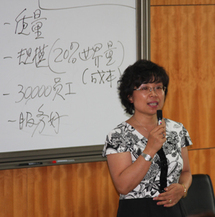 Cecilia Jiang
Cecilia Jiang
Initiated
by Cecilia Jiang, Vice President of Ping An Bank, Hangzhou Branch, and Winner
of the Excellence in Business Leadership Award
by the Said Business School, her bank has sponsored the scholars’ business plan
competition of the Hangzhou programme for five years. “Observing that China’s
SME sector is underserved by the banking industry, I made up my mind to help
the programme by inviting industry experts from Ping An, and from legal,
accounting and venture capital, to give lectures to the scholars. We have seen
improvement of scholars’ sales, fund raising and leadership capabilities. I am
proud that the Bank also provides finance to support the growth of some of the
enterprises.”
“I am touched by their passion and courage,” said Arthur Bi, Partner of Ernst & Young. “Running a small business in China is very tough. And it is even tougher for women. The Oxford workshops created a great opportunity for them to take a step back and see a bigger picture of their business. I believe this will help them go further on the path of entrepreneurship.”
“I am touched by their passion and courage,” said Arthur Bi, Partner of Ernst & Young. “Running a small business in China is very tough. And it is even tougher for women. The Oxford workshops created a great opportunity for them to take a step back and see a bigger picture of their business. I believe this will help them go further on the path of entrepreneurship.”
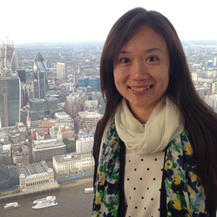 Sabina Liu
Sabina Liu
Sabina Liu (MBA, 2008) is Business Development Manager at Equities and Derivatives Markets of the London Stock Exchange. Prior to this role she worked for the University of Oxford managing and delivering two key projects - the Goldman Sachs 10,000 Women Initiative and the Oxford China Business Forum. She has also been an executive member of the Oxford Business Alumni London Chapter since 2008. Sabina started her career as a foreign correspondent for Phoenix TV in London.
Written in December 2013
Written in December 2013
